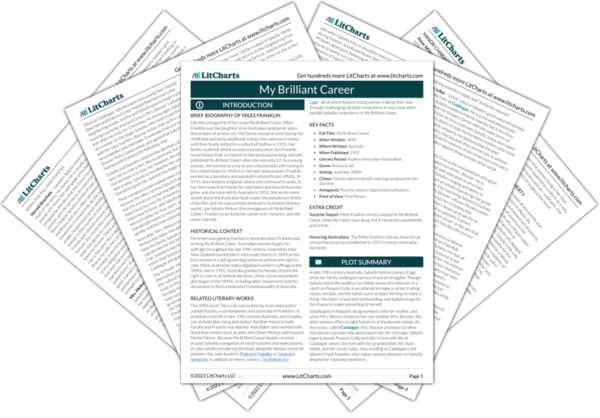Sybylla finds comfort by assuring herself that she will return to Caddagat. While Caddagat was once a home where Sybylla felt comfortable, now it has reached an almost mythical, heavenly status as the only place Sybylla can be truly happy. Sybylla’s interactions with Peter M’Swat also mark a shift––this time, in the way Sybylla deals with men. She handled Frank Hawden’s rudeness by confronting him head-on, driven by a combination of youthful recklessness and social status. Now that Sybylla is more mature and wields less social power, she resolves the issue with Peter by being overly polite to him. Peter’s arrival also brings up another topic of privilege. The M’Swat children’s fascination with Sybylla’s pale complexion is likely because they are suntanned and freckled from spending too much time outdoors. However, Peter’s resentment of Sybylla’s paleness calls to mind issues of race, specifically of the privilege white Australians have compared to Aboriginal Australians. Race does not play a significant role in Sybylla’s narrative, as she primarily interacts with other white Australians. This absence is notable in and of itself, though, since Sybylla is so interested in matters of injustice. The lack of attention she pays to racial prejudices, when she is so concerned with discrimination based on gender and class, suggests that even the most liberal white Australians of this era were often ignorant of the racial issues in their country.
